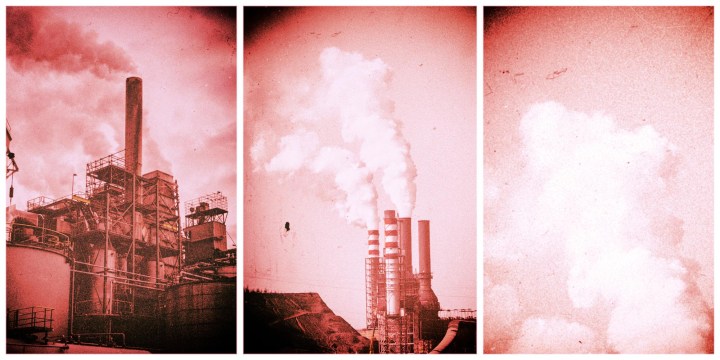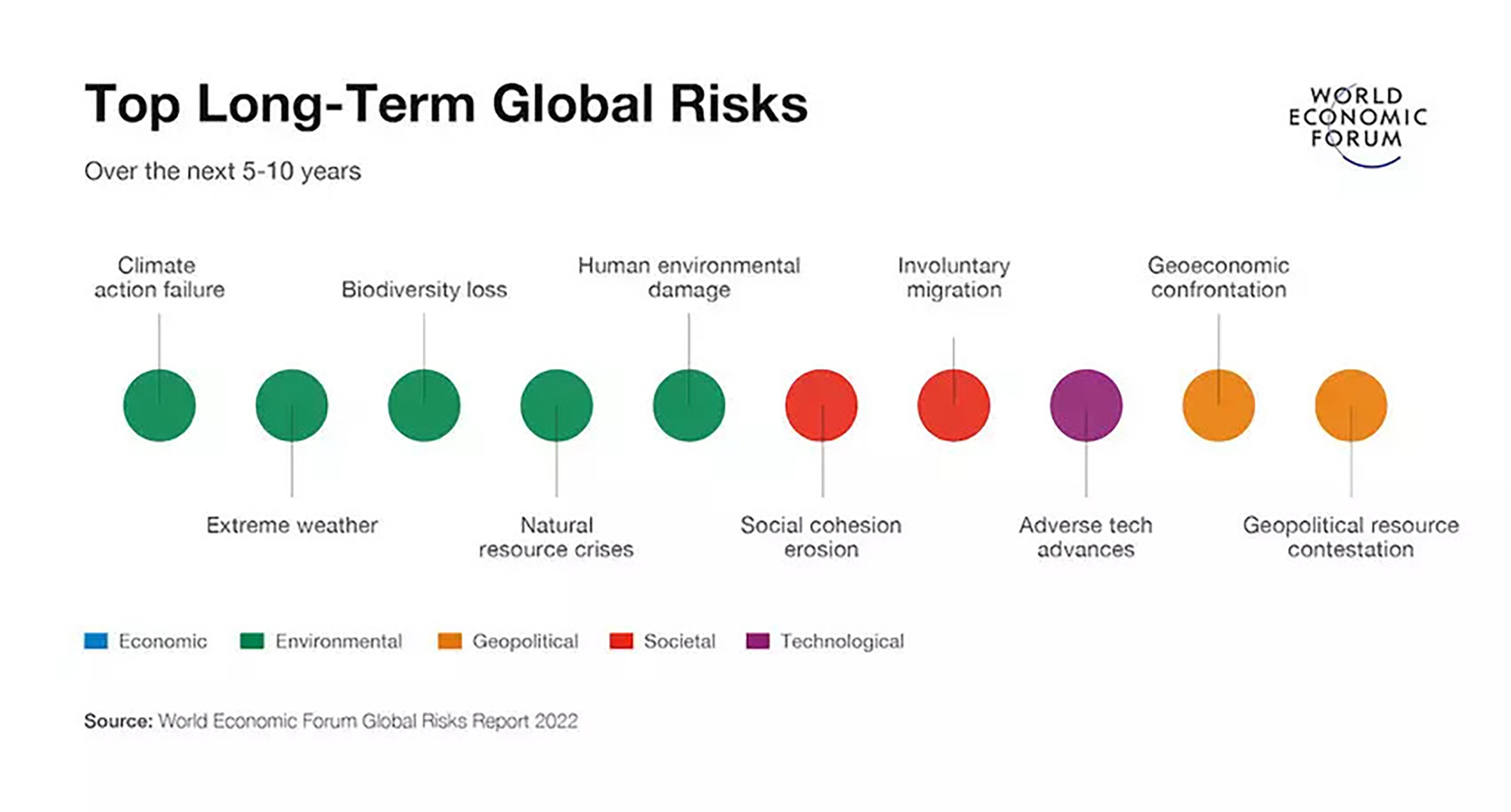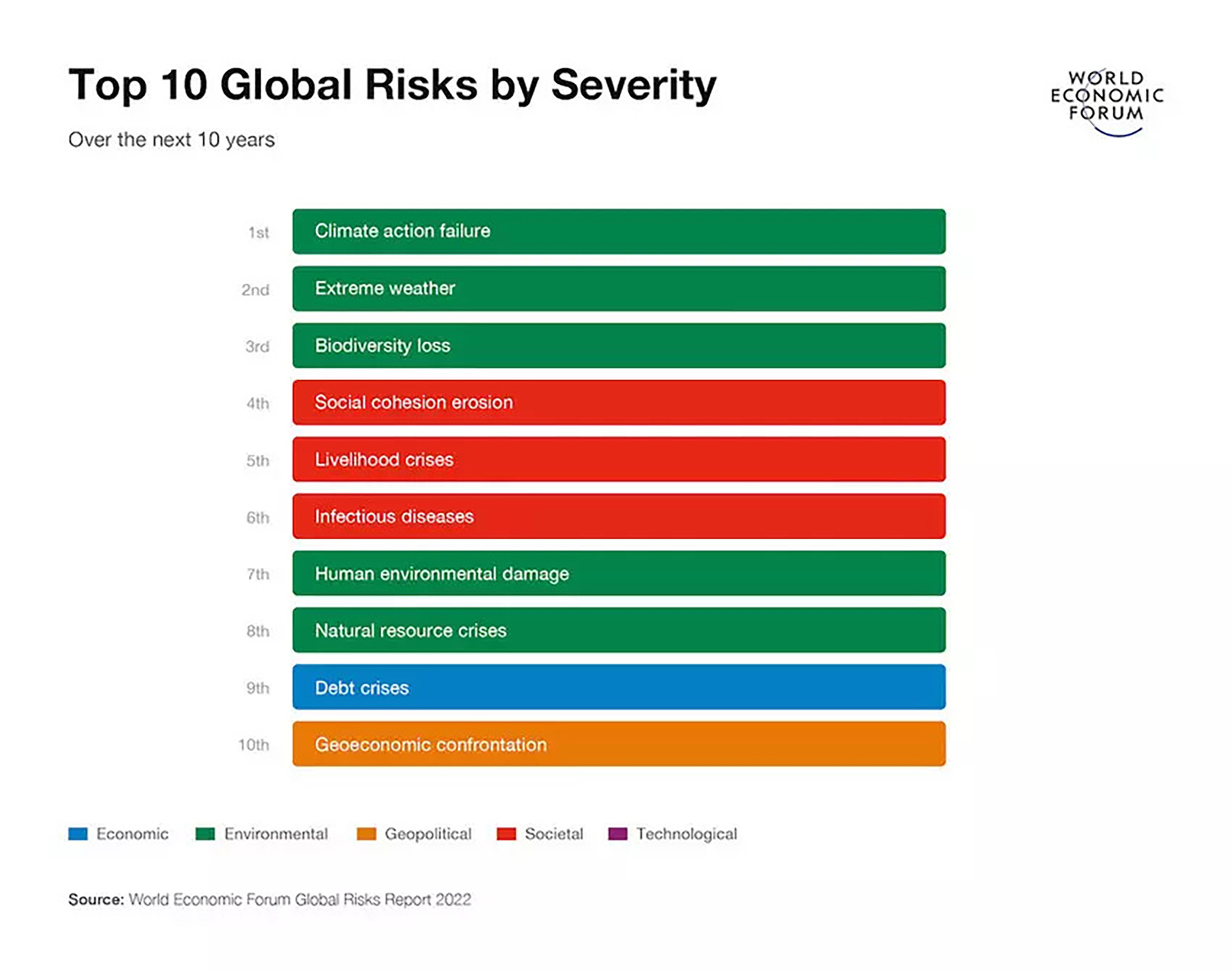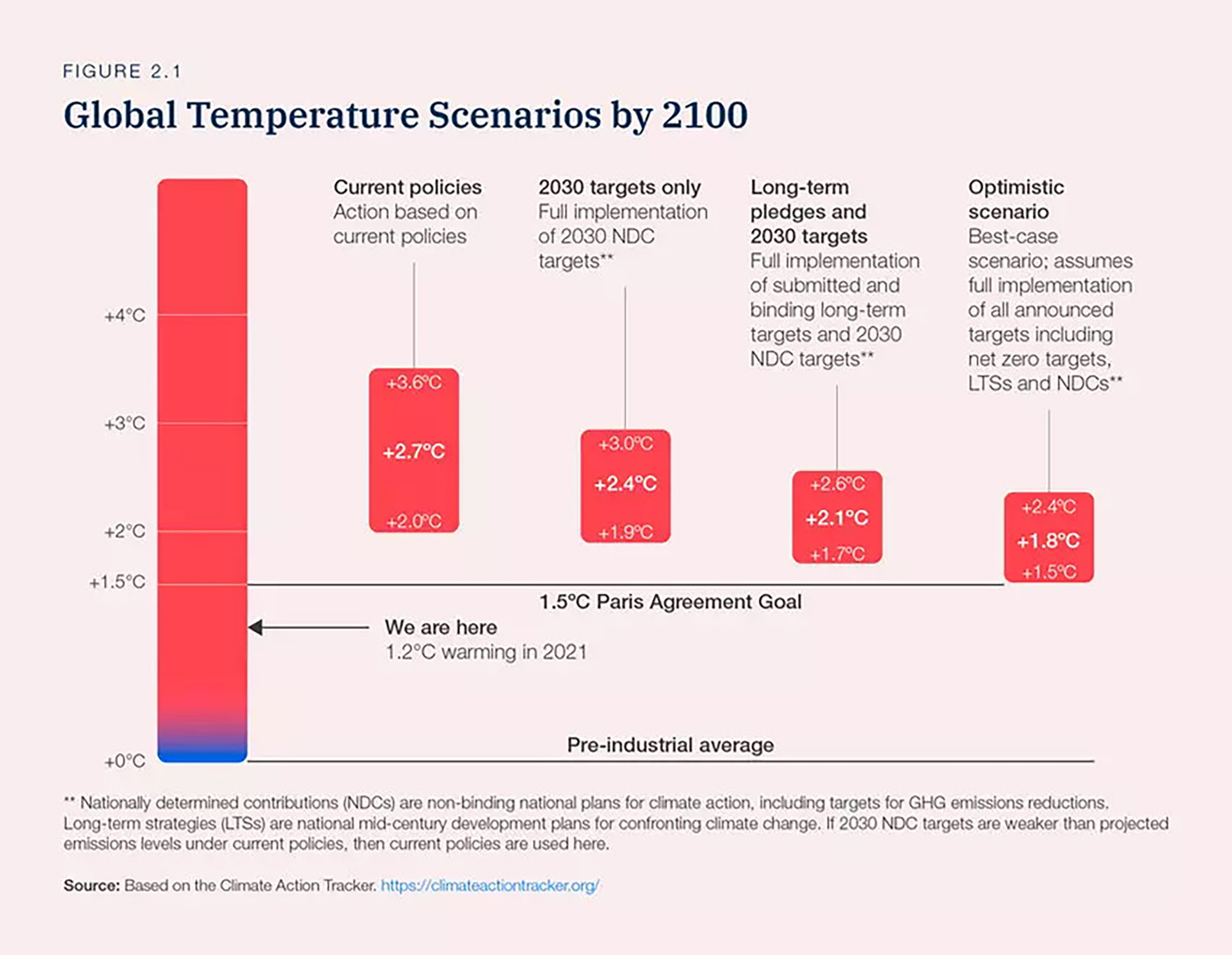GLOBAL RISKS REPORT 2022
Climate crisis is the biggest long-term threat facing humanity, World Economic Forum warns

In its new ‘Global Risks Report 2022’, the World Economic Forum cites ‘climate action failure’ as the number-one risk over the coming decade.
Adverse technological advances, involuntary migration, social cohesion erosion and geoeconomic confrontation. These are some of the main risks the World Economic Forum (WEF) identified as being of concern over the next five to 10 years. None, however, is seen as more critical than the climate crisis.
In its new Global Risks Report 2022, the WEF cites “climate action failure” as the number-one risk over the coming decade. Compiled by the forum’s Global Risks Advisory Board, together with Marsh McLennan, SK Group and Zurich Insurance, the report is an analysis of the results of the latest Global Risks Perception Survey which gauges the views of nearly 1,000 risk experts and global leaders in business, government and civil society.
It shows that respondents consider half of the top 10 most pressing risks humanity faces in the next five to 10 years to be environmental in nature.

They also feel that “extreme weather” and “climate action failure” are among the top short-term risks societies will face in the next two years. Over the next two to five years, it adds “human environmental damage” and “biodiversity loss”. Moreover, the WEF report says that “climate action failure” is the number-one risk over the long term in terms of severity.

The WEF explains that “despite the optimism surrounding the new commitments at COP26, they still fall short of the 1.5°C goal set out in the Paris Agreement. Instead, they steer the world towards 2.4°C warming, with even the most optimistic scenarios only achieving 1.8°C.
“There are only eight years left in this decade and unless governments and businesses quickly take tangible and effective climate action in the next 12 to 18 months, there will be pressure to rush through actions later in the decade, potentially with a raft of new policy – and perhaps harsh economy-wide interventions – to meet their deadlines,” it warns.
Beyond 1.5°C is considered “dangerous climate change”.
One of the headline statements to emerge from the most recent Intergovernmental Panel on Climate Change’s Sixth Assessment Report from Working Group I is that “many changes in the climate system become larger in direct relation to increasing global warming. They include increases in the frequency and intensity of hot extremes, marine heatwaves, and heavy precipitation, agricultural and ecological droughts in some regions, and proportion of intense tropical cyclones, as well as reductions in Arctic sea ice, snow cover and permafrost.”
For South Africa this means a drier, hotter future punctuated by frequent and prolonged droughts.

Peter Giger, group chief risk officer at Zurich Insurance Group, said the climate crisis remains the biggest long-term threat facing humanity.
“Failure to act on climate change could shrink global GDP by one-sixth and the commitments taken at the 26th UN Climate Change Conference (COP26) are still not enough to achieve the 1.5°C goal. It is not too late for governments and businesses to act on the risks they face and to drive an innovative, determined and inclusive transition that protects economies and people.” OBP/DM





















 Become an Insider
Become an Insider
What will be the cost of Davos for climate change? Should it be mitigated?
“In its new ‘Global Risks Report 2022’, the World Economic Forum cites ‘climate action failure’ as the number-one risk over the coming decade.” Please note, uncle Gwede…Peter Giger, group chief risk officer at Zurich Insurance Group: “It is not too late for governments and businesses to act on the risks they face and to drive an innovative, determined and inclusive transition that protects economies and people.” ONLY if there is the political will to implement changes NOW. The ANC does not evidence this kind of political will, so it may, in fact, rapidly become “too late”.